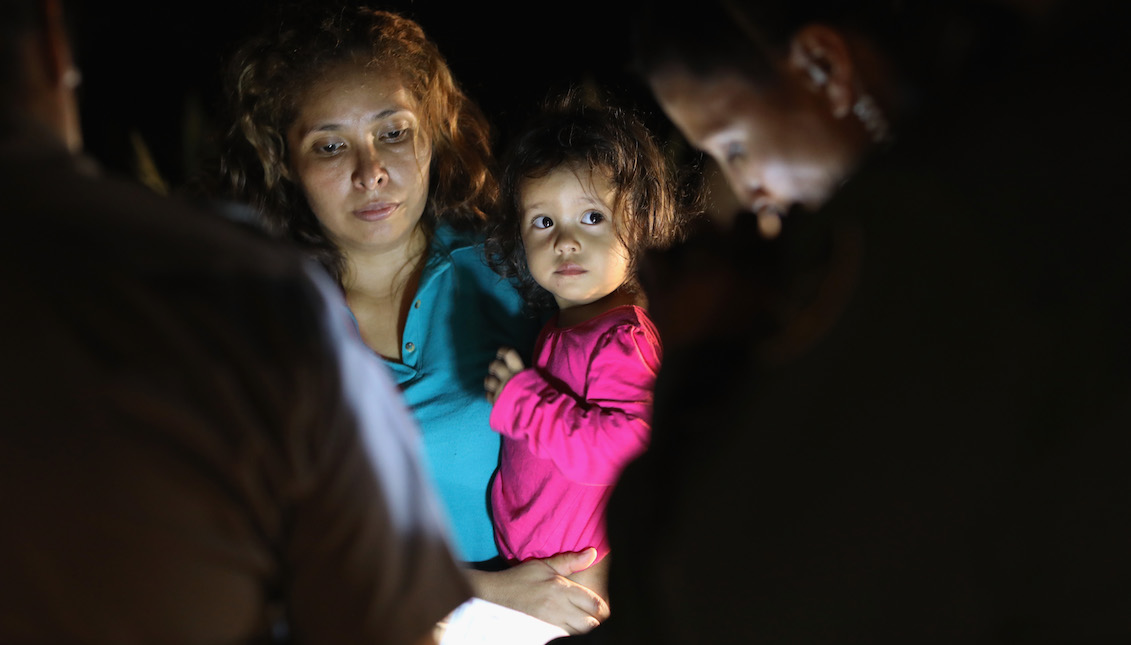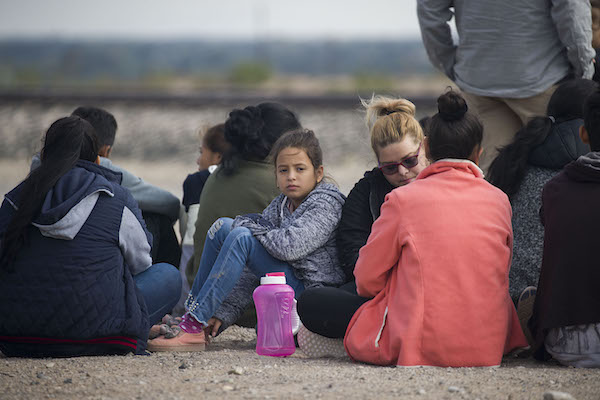
Report exposes the danger of being an immigrant woman under U.S. custody
A report by the Center for American Progress exposes the risk to human rights violations due to negligence and denial of comprehensive medical care of…
By December 2018, about 7,600 women were in the custody of the U.S. Immigration and Customs Enforcement Agency (ICE). With 2019 being the year with the highest apprehensions at the border, it is possible that this number has grown exponentially.
Each of their cases - like that of immigrants who seek a better life in the country - is different. While 70% of these women come from Central American countries, many of them have also lived for decades in the United States, and have been victims of the new anti-immigrant policies of the Trump Administration.
For Nora Ellmann, research assistant for women's health and rights at the Center for American Progress, the government's agenda is grounded "in a white supremacist and misogynist worldview that normalizes the dehumanization of immigrant women of color."
In her latest report on the situation of these thousands of women in U.S. custody, Ellmann explains how the family separation policy, the ban on asylum for families and survivors of domestic violence, and even the blockade on the Violence Against Women Act have represented a systematic attack against women’s rights in the country.
"In their current form, immigrant detention centers are not only incapable of providing adequate women’s health care, but they also inflict damage to the health of women and girls by denying services, neglecting medical needs, and creating new trauma," explains the researcher.

By 2016, 14.5% of the population detained by ICE was women, which represented an increase of 60% since 2009. Likewise, and thanks to policies such as the “Migrant Protection Protocols” established by the government, the detention times have also increased.
According to government figures, the average length of detention for immigrants between fiscal years 2015 and 2016 was 21 days. For 2018, the average increased to almost 40 days.
These lapses tend to increase now due to the intricate mechanisms of asylum application and the increase in border crossings.
Multiple complaints nationwide, as well as the death of several immigrants in custody, have demonstrated the lack of adequate medical care during these periods.
And in the case of women, the risks are greater.
RELATED CONTENT
“Once they enter an immigration detention center, women and girls seeking health care such as preventive care, pain management, reproductive health care, and mental health care must contend with a patchwork of policies, understaffed medical teams, and often indifferent or abusive officials,” explains the report.
In recent years, detention centers - both of ICE and other agencies of the Department of Homeland Security - have failed to comply with standards such as the PBNDS 2011, which includes: an initial health assessment, pregnancy services and counseling regardless of desired pregnancy outcome, access to contraception, evidence of sexually transmitted infections and mental health services.
For Dr. Jaclyn Marie Muñoz, an obstetrician and gynecologist affiliated with the Hospital of the University of Pennsylvania, immigrant detained women need this type of basic primary care, including routine screening for adequate nutrition and exercise, intimate partner violence, sexual assault and mental health issues.
These types of exams are even more complex.
As explained by Dr. Muñoz, "women should be seen as soon as possible once they know they are pregnant to make sure they do not have an ectopic pregnancy (a pregnancy outside the uterus) or signs of a miscarriage."
"Without primary care, women can have delayed diagnosis of serious medical conditions, including cervical, uterine and breast cancer," she adds. "Any delay in diagnosis can greatly affect the chances the woman has of surviving her condition."
Recommendations set forth in the report include ending excessive unjustified dependence on detention, a solid investment in community-based detention alternatives (ATD) and greater access to legal advice.
For Muñoz, on the other hand, this type of support, as well as access to services and protection against human rights violations "are essential for all our fellow humans, regardless of their citizenship."











LEAVE A COMMENT:
Join the discussion! Leave a comment.